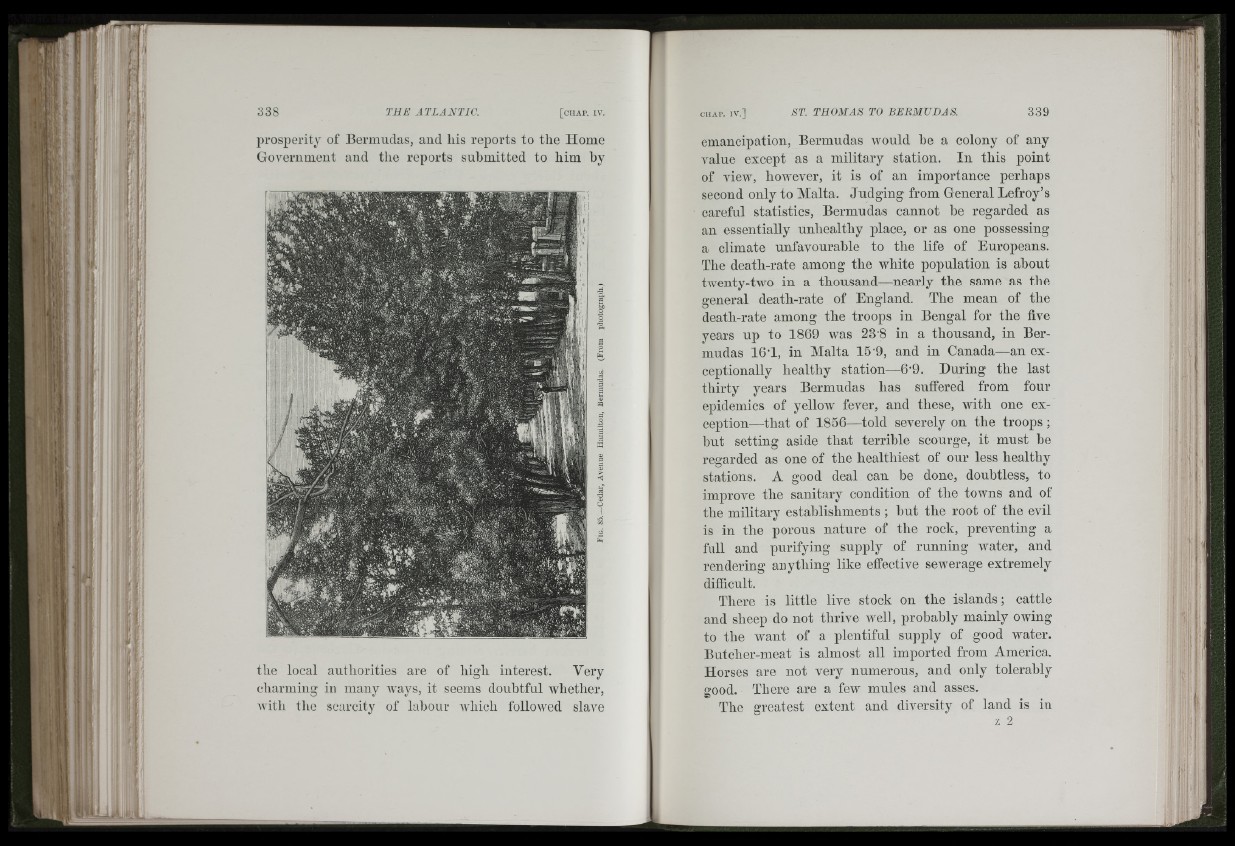
s, Ml
ay,.
tu ii ii
prosjAeiity of Bermudas, and his reports to the Home
Government and the reports submitted to him by
the local authorities are of high interest. Very
charming in many Avays, it seems douhtfnl whether,
Avith t h e s c a r c it y of labour Avhich followed slave
emancipation, Bermudas Avould he a colony of any
value except as a military station. In this point
of view, however, it is of an importance perhaps
second only to Malta. Judging from General Lefroy’s
careful statistics, Bermudas cannot be regarded as
an essentially unhealthy place, or as one possessing
a climate unfavourahle to the life of Luropeans.
The death-rate among the Avhite population is ahout
tAventy-two in a thousand—nearly the same as the
general death-rate of Lngland. The mean of the
death-rate among the troops in Bengal for the five
years up to 1869 was 23'8 in a thousand, in Bermudas
16 T, in Malta 15-9, and in Canada—an exceptionally
healthy station—6'9. During the last
thirty years Bermudas has suffered from four
epidemics of yellow fever, and these, with one exception—
that of 1856—told severely on the troops;
hut setting aside that terrible scourge, it must he
regarded as one of the healthiest of our less healthy
stations. A good deal can be done, doubtless, to
improve the sanitary condition of the toAvns and of
the military establishments ; hut the root of the evil
is in the porous nature of the rock, preventing a
full and purifying supply of running water, and
rendering anything like effective sewerage extremely
difficult.
There is little live stock on the islands; cattle
and sheep do not thrive Avell, probably mainly owing
to the want of a plentiful supply of good water.
Butcher-meat is almost all imported from America.
Horses are not very numerous, and only tolerably
good. There are a few mules and asses.
The greatest extent and diversity of land is in
z 2
i
i'IIÜ;
X I
■if ill
ni
'k
"V ( i t
if iitei ii;
| f